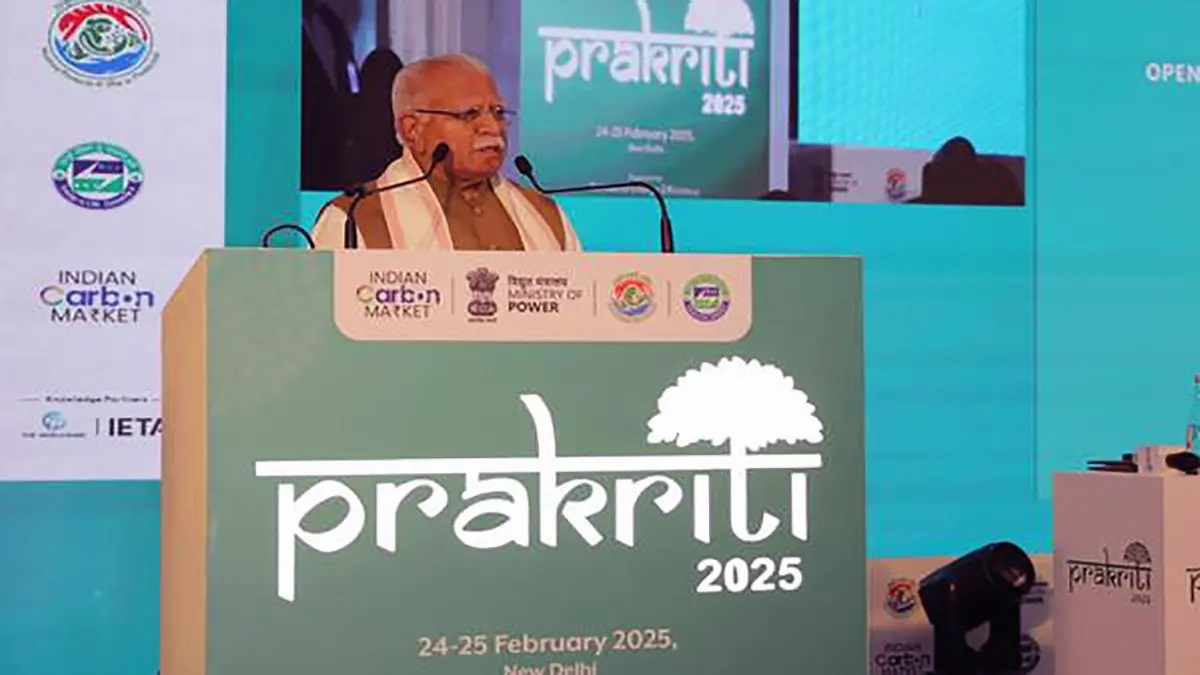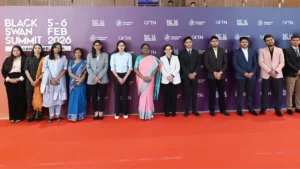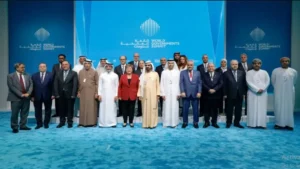The first International Conference on Carbon Markets, Prakriti 2025, was held in New Delhi on February 24-25, 2025, marking a crucial moment in India’s climate action strategy. Organized by the Bureau of Energy Efficiency (BEE) under the Ministry of Power, the event brought together over 600 delegates, including policymakers, industry leaders, researchers, and international experts, to discuss the future of carbon markets in India. The conference focused on creating a structured carbon market to help India transition toward a low-carbon economy while ensuring transparency, sustainability, and industry collaboration.
Why Is India Focusing on Carbon Markets Now?
India has been making efforts to reduce carbon emissions in line with its commitment to global climate goals. Union Minister for Power and Housing & Urban Affairs, Shri Manohar Lal, who inaugurated the event, stressed the importance of carbon markets in controlling emissions. He pointed out that India is shifting away from fossil fuels and adopting more renewable energy solutions. Highlighting India’s cultural connection with sustainability, he referenced practices like Ganga Deep Puja and Govardhan Puja, which emphasize environmental consciousness. The Minister also emphasized the need for transparent and verifiable carbon reduction mechanisms to ensure accountability.
How Will the Indian Carbon Market (ICM) Work?
The Indian Carbon Market (ICM) is expected to operate in a phased manner, as explained by Shri Akash Tripathi, Additional Secretary of the Ministry of Power. The plan aims for a 40% reduction in emissions by 2027, with full implementation by 2030. The carbon market will allow businesses to trade carbon credits, incentivizing companies to reduce their emissions and transition toward cleaner energy sources. The approach ensures that industries can meet national climate targets cost-effectively. The success of this system will depend on clear regulations, market stability, and active participation from industries.
What Are the Global Challenges and Private Sector Perspectives?
Thomas Kerr, Lead Climate Change Specialist at the World Bank, spoke about how global carbon pricing policies impact India. He particularly noted the European Union’s Carbon Border Adjustment Mechanism (CBAM), which could affect Indian exports, especially in steel and aluminum industries. He urged Indian businesses to engage proactively in domestic carbon markets to remain competitive globally.
Former Finance Secretary, Mr. Ashok Lavasa, highlighted the need for strong governance in the carbon market. He stressed the importance of Measurement, Reporting, and Verification (MRV) frameworks to ensure fair benefit distribution and compliance with international standards. Lavasa called for international cooperation while tailoring policies to India’s unique economic and environmental challenges.
Public Engagement and Future Strategies
The conference also emphasized the role of individuals in climate action. UN Goodwill Ambassador and actor, Ms. Dia Mirza, spoke about the Government of India’s LiFE (Lifestyle for Environment) initiative, which encourages responsible consumption. She emphasized the importance of involving youth and communities in climate discussions to drive long-term change.
Multiple discussions took place on topics such as:
- How to incentivize renewable energy developers through carbon markets
- The role of Article 6 of the Paris Agreement in shaping international carbon trade
- Strategies to enhance price transparency in global carbon trading
- The potential of nature-based solutions in achieving net-zero goals
Key Highlights of Prakriti 2025 Conference
| Aspect | Details |
|---|---|
| Why in News? | India hosted its 1st International Conference on Carbon Markets, Prakriti 2025, on February 24-25 in New Delhi. |
| Organizer | Bureau of Energy Efficiency (BEE) under the Ministry of Power |
| Chief Guest | Shri Manohar Lal, Union Minister for Power and Housing & Urban Affairs |
| Key Target | Indian Carbon Market (ICM) aims for 40% emission reduction by 2027, full implementation by 2030 |
| Global Impact | EU’s Carbon Border Adjustment Mechanism (CBAM) could affect Indian exports, especially in steel and aluminum |
| Governance Focus | Strong Measurement, Reporting, and Verification (MRV) frameworks and international collaboration for carbon markets |
| Public Engagement | UN Goodwill Ambassador Dia Mirza promoted India’s LiFE (Lifestyle for Environment) initiative for sustainable living |
| Key Topics Discussed | Role of carbon pricing, Article 6 of Paris Agreement, incentives for renewable energy, and transparency in carbon trade |
| Outcome | Set the foundation for a structured, transparent carbon market to help India transition toward a low-carbon economy. |



 Black Swan Summit India 2026 Kicked off:...
Black Swan Summit India 2026 Kicked off:...
 World Government Summit 2026: Shaping Fu...
World Government Summit 2026: Shaping Fu...
 Where Will the 6th National Crop Nutriti...
Where Will the 6th National Crop Nutriti...








